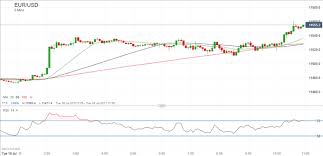
Headline indices of the Japan share market declined more than a three-week low on Wednesday, 21 November 2018, weighed by a renewed bout of global stock sell-off amid intensifying growth concerns, plummeting commodity prices, and trade concerns. Almost all TSE33 issues declined, with Mining, Oil & Coal Products, Wholesale Trade, Securities & Commodities Futures, Iron & Steel, and Marine Transportation issues being notable losers. In late afternoon trades, the 225-issue Nikkei index declined 85.44 points, or 0.4%, at 21,497.68, the lowest level since Oct. 30. The broader Topix index of all First Section issues on the Tokyo Stock Exchange was down 10.99 points, or 0.68%, to 1,614.68.
US stocks sold off for a second day on Tuesday as energy shares dropped with oil prices, while retailers including Target and Kohl's sank after weak earnings and forecasts, fuelling worries about economic growth. The Nasdaq closed at its lowest in more than seven months on Tuesday while the S&P 500 and Dow ended at their weakest since late October. The Dow plunged 551.80 points or 2.21% to 24,465.64, while the NASDAQ shed 119.65 points or 1.70% to 6,908.82 and the S&P 500 fell 48.84 points or 1.82% to 2,641.89.
Crude oil prices on Wednesday clawed back some of the previous day's more than 6% fall, supported by a report of an unexpected drop in U.S. commercial crude inventories as well as record Indian crude imports. But investors remained on edge, with the International Energy Agency (IEA) warning of unprecedented uncertainty in oil markets due to a difficult economic environment and political risk. International Brent crude oil futures were at $63.42 per barrel at 0157 GMT, up 89 cents, or 1.4% from their last close. U.S. West Texas Intermediate (WTI) crude futures, were up 70 cents, or 1.3%, at $54.13 a barrel. Wednesday's gains came after a report by the American Petroleum Institute on Tuesday that U.S. commercial crude oil inventories had fallen unexpectedly by 1.5 million barrels, to 439.2 million barrels, in the week to Nov. 16. Yet Wednesday's bounce was small in the context of general market weakness, which saw crude tumble by more than 6% at $53.43 a barrel, the lowest settlement price in 13 months, the previous session amid a selloff in global stock markets.
The ongoing trade dispute between the U.S. and China shows no signs of being resolved anytime soon, and the crisis is expected to have a negative impact on the economies of both countries. This does not bode well for the Japanese economy, which is heavily reliant on exports to both countries. An Asia-Pacific Economic Cooperation summit in Papua New Guinea ended in discord on Sunday, with leaders unable to agree on a final communique. U.S Vice President Mike Pence, who headed the U.S. delegation, was blunt in his remarks, saying that China would have to drastically change its trade practices before the U.S. would remove current tariffs on $250 billion in Chinese goods.
The Bank of Japan has no plans to alter its ultra-accommodative monetary policy, as inflation remains well below the BoJ target of around 2%. However, there have been negative side effects to this stance, primarily the toll on bank profits, which has raised concerns that banks might take excessive risks in order to recoup lost profits. BoJ Governor Haruhiko Kuroda addressed this issue on Monday, warning that risk management steps were needed in order to maintain the stability of the financial system and ensure that borrowing costs did not climb sharply.
Shares of global cyclical resource players such as trading houses, steelmakers and mining shares underperformed amid pullback in crude oil and base metal prices. Marubeni Corp shed 2.8%, Mitsubishi Corp tumbled 3.0%, Nippon Steel and Sumitomo Metal declined 2.2%, JFE Holdings dropped 2.1% and Inpex Corp stumbled 4.1%.
Nissan Motor Co rebounded from a Tuesday's drop following the arrest on Monday night of chairman Carlos Ghosn, which created shockwaves.
Department store operator Takashimaya Co nosedived 16% after it said it will issue convertible bonds.
CURRENCY NEWS: Japanese yen was down in the mid-112 yen zone against greenback on Wednesday, as demand for safe heaven unit resumed amid lingering concerns about the outlook for the global economy along with uncertainty about the potential for a trade deal between the U.S. and China. The dollar was a shade lower at 112.765 yen after edging up 0.2% on Tuesday.
0 thoughts on “Japan Nikkei falls as risk sentiment worsens”